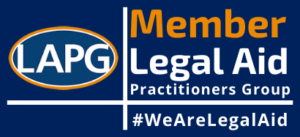Violence, Lies, And Pushbacks As Part Of Greece’s “De Facto” Policy Towards Migrants
Originally published in Human Rights Pulse
On 23 June 2021 Amnesty International released a report entitled “Greece: Violence, Lies, and Pushbacks” documenting the treatment of migrants (this term is used neutrally here and includes those applying for international protection) attempting to enter Greece from Turkey either in the Evros region or the Aegean Islands, and those who have already entered Greece. The report records 21 documented examples of pushbacks both at sea and land, alongside startling human right abuses. Such treatment demonstrates Europe’s continuing trend away from human rights protection towards border control along with a lack of accountability from the European Union’s border force, Frontex.
Greece, like other frontier EU Member States, has borne the brunt of the influx of migrants fleeing conflict and persecution from countries including Syria and Afghanistan. Despite the “EU-Turkey” deal and provisional legislative measures (found here and here) to alleviate the burden, Greece has still struggled to manage the large numbers of migrants with their containment policy on the Aegean Islands degrading to an increased militarisation of borders and an increase in pushbacks. In other words, towards a de facto pushback policy.
PUSHBACKS
The term pushback is a colloquial term used to describe any measures taken by state authorities to prevent asylum-seekers from exercising their right to asylum by forcibly removing them out of their territory, in other words pushing them back over the border they crossed. They can happen either at sea, by turning the boats back, or by forcibly removing them from the land territory with detention often followed by accompaniment to the border. Such measures are often carried out coercively with either threats of or actual violence. Pushbacks violate the fundamental asylum-law principle of non-refoulement and are contrary to international and EU human rights law of which Greece, as an EU Member State is subject to as well as national law (article 20 and 41 of Law no. 3907 of 2011.16).
Whilst regrettably, pushbacks at sea have long been depicted in the media, the report documents the equally ubiquitous policy of land pushbacks occurring at the river Maritsa in the Evros region between Greece and Turkey. Both the land and sea pushbacks involved masked officials dressed in military-style clothing or even civilian clothes, with no right to an individualised assessment and challenge of any return decisions. In two documented occasions, the migrant had registered protection status.
Such a failure to provide individualised assessments and due process falls afoul of European human rights law. The starting point is that applicants are entitled, through Article 18 of the Charter of Fundamental Rights (enjoying force as EU primary law through Article 6(1) TEU), to the right to asylum. Through Article 10(3)(a) of Directive 2013/32/EU (“The Procedures Directive”) it is required that “applications are examined and decisions are taken individually, objectively and impartially”. Although EU Member States are permitted to deem applications for international protection inadmissible in certain situations (Article 33 of the Procedures Directive), most notably because the applicant has come from a safe third country, which in this context is Turkey according to the Greek government, applicants must be allowed to make personal representations to challenge that (Articles 14 and 34 of the Procedures Directive). Otherwise, they may be at risk of refoulement (French for return. In the asylum context, this denotes returning an applicant to a country where they would be subject to serious harm). Indeed, the protection against refoulement extends to those deemed ineligible for international protection (N.D. and N.T. v. Spain §178, ECtHR). Indeed, even if it were legal to issue migrants with a return decision, there are procedural safeguards in place. Article 12 of Directive 2008/115/EC (“The Returns Directive”) specifies that recipients of such decisions are issued them in writing, in a language they can understand making them aware of their legal rights and remedies. Therefore, the failure to give them an individualised assessment or to allow migrants the chance to challenge their returns is a startling failure of the Greek government to protect the fundamental rights of migrants.
The report further documents arbitrary arrest and detention where the migrants are kept in detention centres for periods ranging from several hours to a day with no access to a phone, lawyer, reasons for detention, nor any registration procedure resembling any due process protected under Article 47 of the EU Charter of Fundamental Rights. Under Article 8 of Directive 2013/33/EU (The “Receptions Directive” and international law (Article 31 of the 1951 Convention and Protocol Relating to the Status of Refugees), applicants for international protection cannot be detained for the sole reason of being applicants. In all of the documented occasions, Amnesty concluded the applicants were being detained arbitrarily. These facilities are described as “a staging post for the pushback of migrants” in the report (page 22). Detention conditions are further described as unsuitable for the migrants often lacking beds, toilets, and sufficient lighting. This is particularly regrettable within the current pandemic.
To make matters worse the report documents repeated serious physical assaults at the hands of Greek authorities sometimes in civilian clothing with no clear identification of their purported state authority. Assaults include repeated blows, kicking, and beating leading to bleeding and broken bones. This, combined with humiliating strip searches, concludes Amnesty, amounts to inhuman and degrading treatment contrary to Article 3 ECHR and potentially the right to life in Article 2.
Given the repeated accounts given by migrants, Amnesty concludes these occasions are not isolated responses to extreme circumstances but rather a systematic de facto policy of pushbacks, arbitrary detention, and serious assault. In addition the government maintains a culture of denial of these abuses and criminalises NGOs assisting migrants.
The Turkish authorities also come under criticism often returning migrants who have been forcibly removed from Greece, leading to locals cynically describing it as “Greek water polo”. Migrants are also intimidated into not returning to Turkey.
Meanwhile the EU remains hesitant to remedy this situation, with Frontex turning a blind eye to these abuses. The President of the European Commission Ursula von der Leyen recently described Greece as “Europe’s shield” evidencing an increasing shift from fundamental rights protection to border control. Indeed, Greece has the largest deployment of Frontex officers. Amnesty and Human Rights Watch have both called for greater transparency, accountability, and for a termination of Frontex operations in Greece given their complicity in the abuses occurring. However, a recent internal report concluded termination was not necessary.
RECOMMENDATIONS AND CONCLUSIONS
For the Greek authorities, Amnesty recommends an immediate cessation of pushbacks, prompt and impartial investigations into the alleged human rights abuses, for authorities to protect irregular entry of migrants by land or sea in compliance with EU and international human rights law, and a halt to the criminalisation of irregular entry of migrants and asylum-seekers.
The EU is asked to take steps to prevent Greece carrying out its illegal operations notably by the Commission initiating infringement proceedings against Greece. The EU is also asked to invoke Article 46 of Regulation (EU) 2019/1896 to terminate Frontex’s operations at the Greece-Turkey border.
This report amounts to scathing criticism of Greece and the EU but should not come as a surprise given the repeated reports of pushbacks across the EU. Whether these recommendations are acted upon remains uncertain but given the hardening of the EU’s border rhetoric it seems more likely that they will not be.

Charles is a recent Graduate Diploma in Law graduate. He is passionate about pursuing an area of law that makes a difference to the lives of the individual. His interests include European refugee law, criminal, family, and immigration law. In his free time he enjoys listening to music and reading.
Linkedin










Leave a Reply
Want to join the discussion?Feel free to contribute!